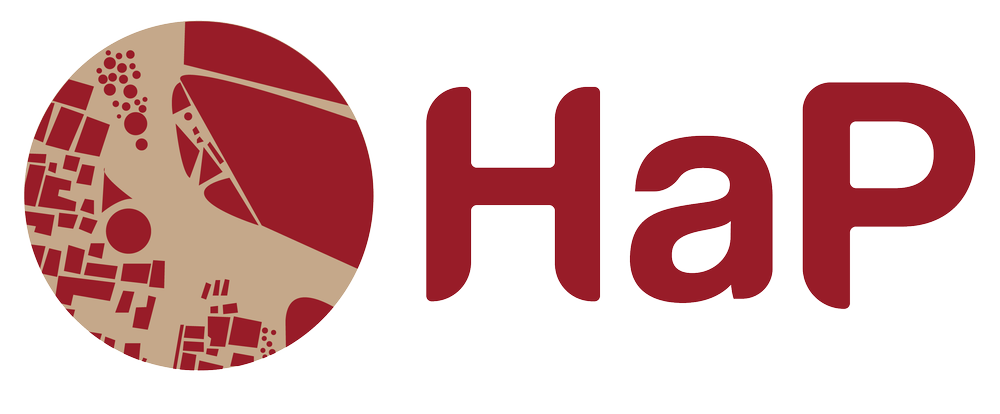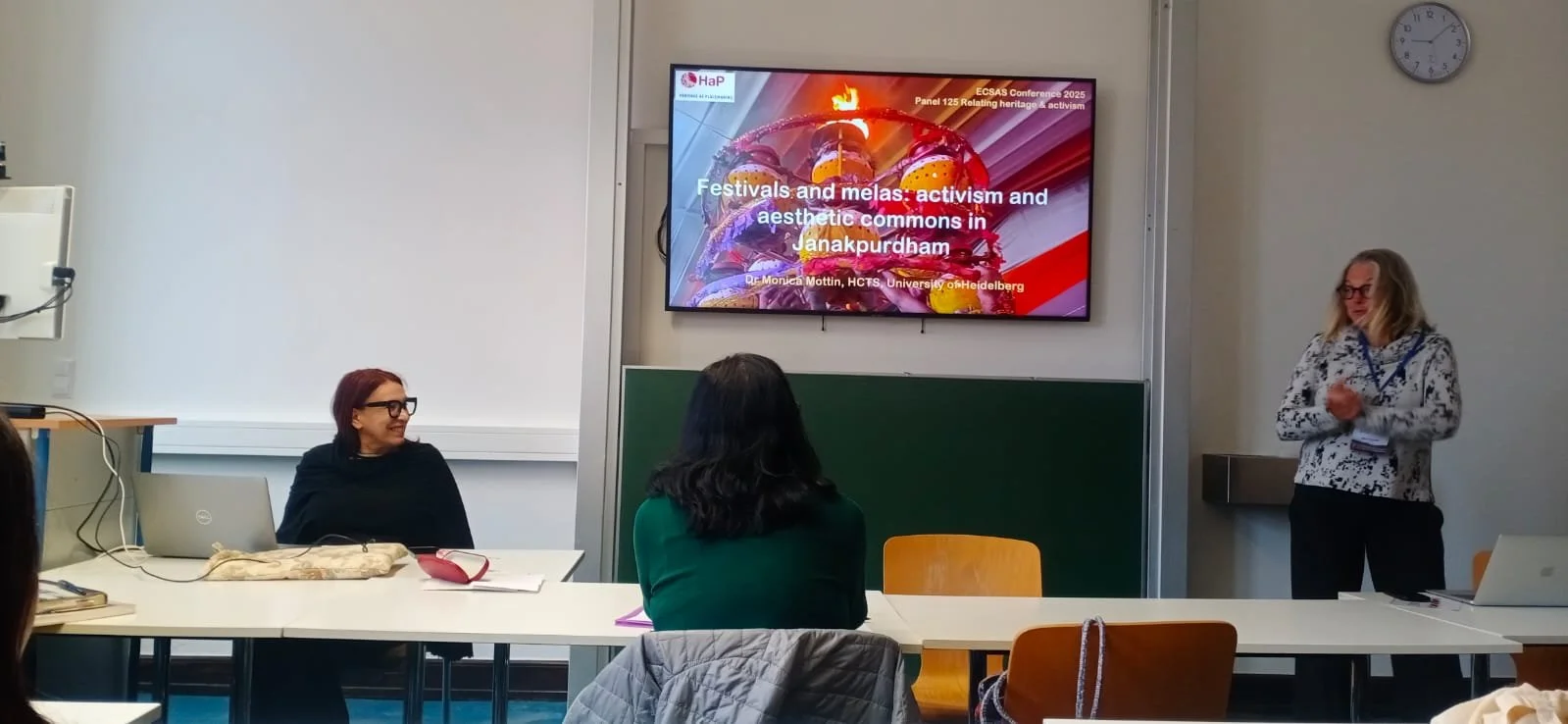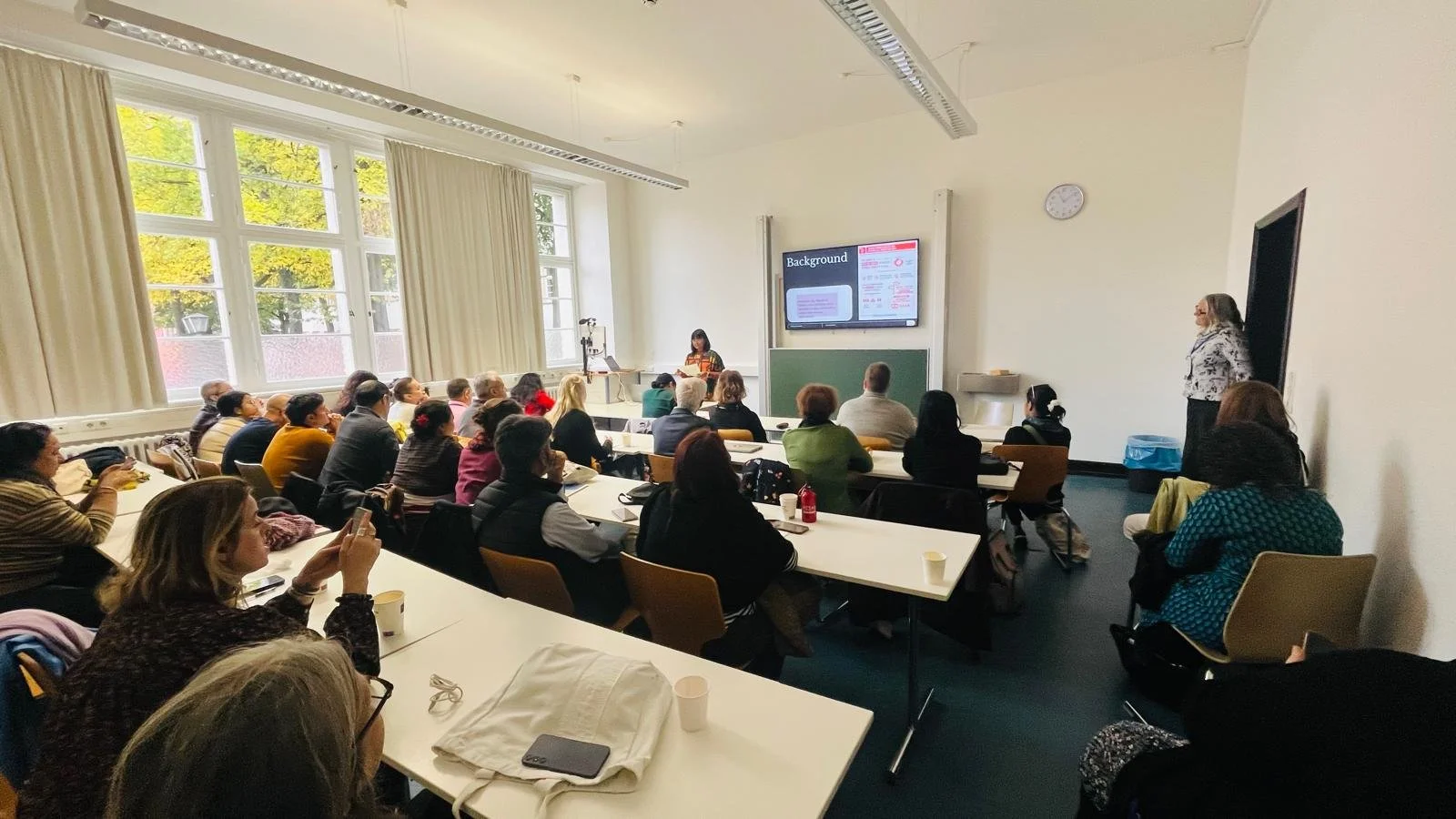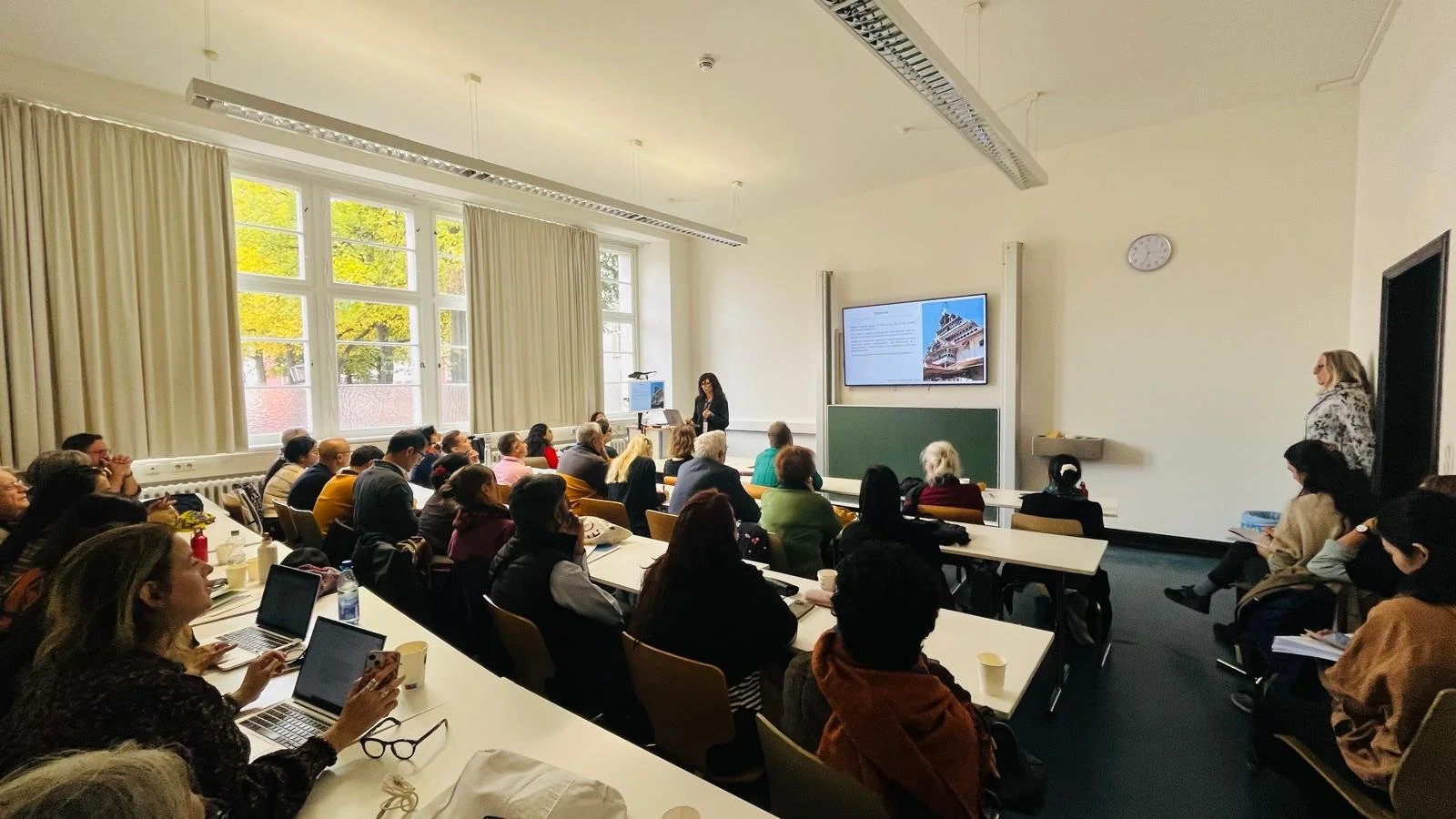Heritage as Placemaking participated with its own panel in ECSAS the bi-annual conference of the European Association of South Asian Studies, held from the 1st to the 4th of October, 2025 in Heidelberg, Germany. Heritage activism was investigated in its actions upon space through eight papers, moderated by HaP Principal Investigator Dr. Stefanie Lotter. The two further co-convenors of the panel, Principal Investigator Prof. Dr. Christiane Brosius and Research Fellow Dr. Monica Mottin, presented respectively the papers Heritage as placemaking through artistic means and Festivals and melas: activism and aesthetic commons in Janakpurdham, Nepal. Binita Magaiya, Research Assistant, presented her paper Understanding activism through the process of heritage reconstruction: A case study of Kasthamandap. Out of the HaP researcher circle, but close to the core of the project, Pushpa Palanchoke (Community Outreach recipient, guest lecturer and collaborator in two of HaP’s summer schools) presented her paper When preservation silences: The heritagization of a women’s musical tradition in Nepal, and Diego Jaimes-Niño, project coordinator of HaP, presented Practice-based approaches to urban built heritage in the historic centers of the Kathmandu Valley. Gita Pai, Sara Mondini and Abhiri Sanfui completed the panel, which took place within Heidelberg University’s Neue Aula. The panel gained great attention within the conference which served, as well, as a meeting point for present and former members of HaP to broadcast research findings, in the frame of the conclusion of the project.
Monica Mottin and Stefanie Lotter. Photo courtesy of panel organization.
Pushpa Palanchoke presenting her paper. Photo courtesy of panel organization.
Sara Mondini presenting at the conference. Photo courtesy of panel organization.
Panel call:
The establishment, appropriation and contestation of heritage takes different forms that reify, politicize, curate or diversify identificatory ideas. Recently, we have seen a sharp rise in the promotion of South Asian cultural heritage for national, ethnic, diasporic and other communal purposes, that shape and divide interest groups. This panel examines how cultural heritage is both the product and consequence of civic engagement and political mobilization. Social cohesion, ideas of solidarity and the recognition of commonalities are essential for the processes of creating cultural heritage. But defined through the creation, its uphold or its destruction of cultural heritage, commonalities are also instrumentalized and mobilized for political means. We thus suggest considering heritage and activism in their dynamic relationship to each other. Activism as a practice shows how intersectional and diverse social actors negotiate the meaning of places and access to them. Activism as an indicator of meaning shows how collective ownership is understood and renegotiated in times of disaster or difficult social, economic or political times. With this panel, we hope to assemble contributions that critically illuminate and explore the subtleties and nuances of the relationship between a “culture-bearing community” and identity-forming cultural heritage across a range of relations, from “tribal” to “shared” to “post-migrant” to “transcultural” dynamics of heritage making in, across and beyond (yet connecting with) the South Asian region.



